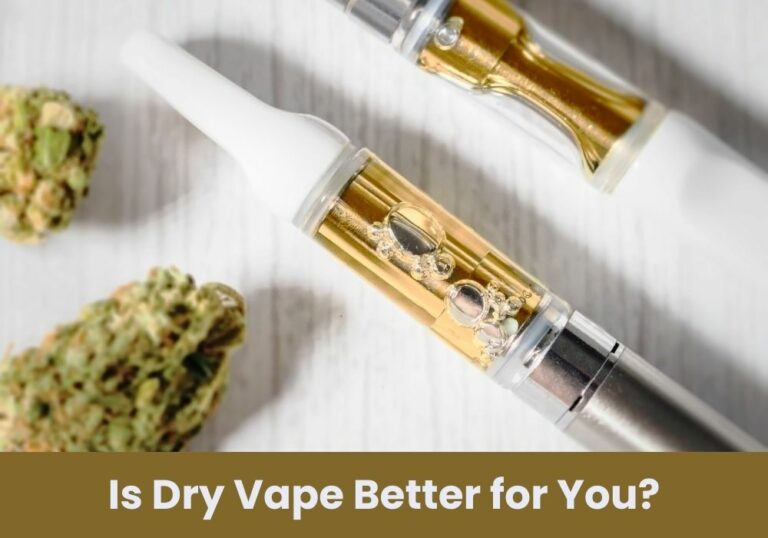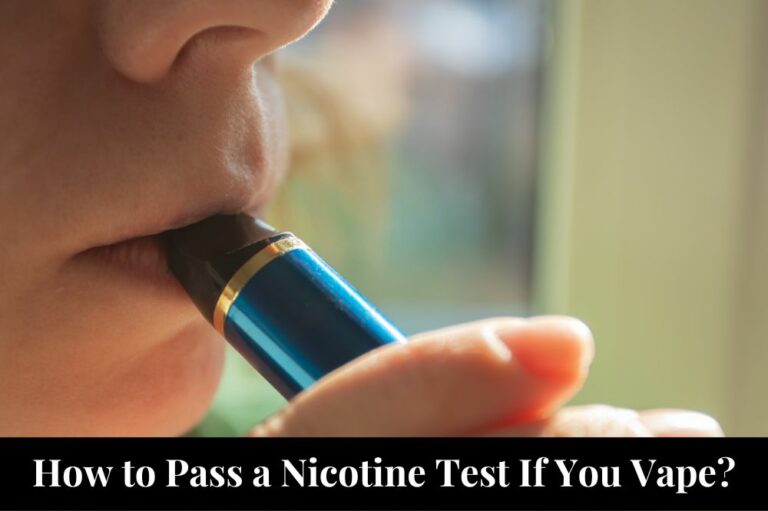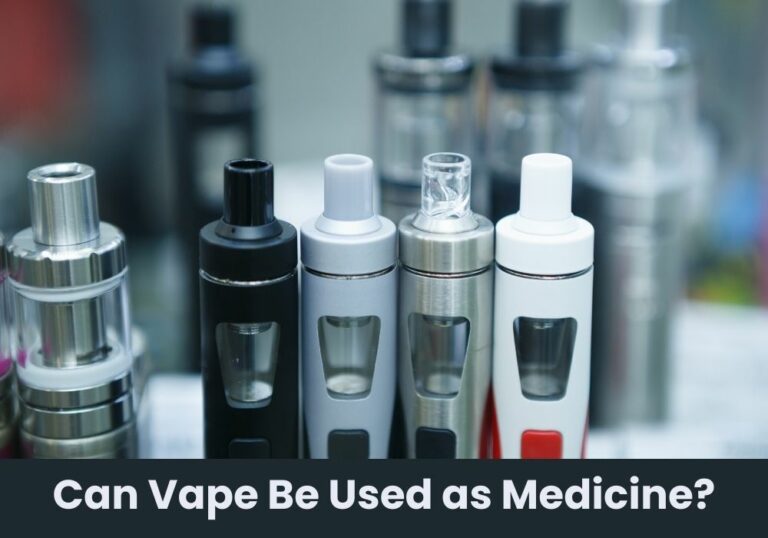
If you’re a smoker looking to quit, you may have considered vaping as an alternative. But do doctors prescribe vaping? The answer is not a straightforward yes or no. While some doctors may recommend vaping as a safer alternative to smoking, others warn against it due to potential health risks.
A study shows that a surprisingly large percentage of physicians have recommended vaping as a safer alternative to their smoking patients. However, some doctors still believe that quitting smoking altogether is the best option for overall health. It’s important to speak with your doctor and weigh the potential benefits and risks before deciding whether or not vaping is right for you.
Furthermore, it’s worth noting that vaping is not without risks. The liquid used in e-cigarettes contains chemicals that can be harmful when inhaled, and the long-term effects of vaping are still unknown. Additionally, some studies have shown that vaping can lead to addiction and may even serve as a gateway to smoking traditional cigarettes. It’s crucial to approach vaping with caution and to make an informed decision with the guidance of a healthcare professional.
Understanding Vaping
If you’re considering vaping as an alternative to smoking, it’s important to understand what vaping is and how it works. Vaping involves inhaling an aerosol, also known as vapor, that is produced by an electronic cigarette or other vaping device. This aerosol typically contains nicotine, flavorings, and other chemicals.
Although vaping is often marketed as a safer alternative to smoking, it’s important to note that it’s not completely safe. While vaping is generally considered to be less harmful than smoking, there are still risks associated with using e-cigarettes and other vaping devices.
One of the main risks associated with vaping is the potential for addiction to nicotine. Nicotine is a highly addictive substance, and many e-cigarettes and other vaping devices contain high levels of nicotine. In addition to being addictive, nicotine can also have negative effects on your health, including increasing your risk of heart disease, stroke, and other health problems.
Another risk associated with vaping is the potential for lung damage. Although vaping is generally considered to be less harmful than smoking, there is still some evidence to suggest that it can cause damage to your lungs. This is because the aerosol produced by vaping devices can contain harmful chemicals that can irritate and damage your lungs over time.
SPIRITBAR Katana BP10000
- Slender, leather-textured body reminiscent of a katana handle for an authentic samurai feel
- Unique samurai-inspired e-liquid flavor - fruity yet not too sweet, with a luxurious, elegant aroma
- Powerful 650mAh rechargeable battery for extended vaping time
- Large 18ml e-liquid capacity and 10,000 puff capacity
- Advanced mesh coil and e-liquid & power display screens for optimal vaping experience
The special juice captures the essence of the samurai spirit with its rich, smoothly pulsating flavor that brings new satisfaction with every puff. The device's slender, leather-textured design evokes the grip of a samurai's katana, making this product a perfect choice for beginner vapors.
Overall, if you’re considering vaping as an alternative to smoking, it’s important to understand the risks and potential side effects associated with this practice. While vaping may be a useful tool for some people looking to quit smoking, it’s not a completely safe or risk-free alternative. If you’re concerned about the potential risks associated with vaping, it’s important to talk to your doctor or other healthcare provider to get more information and advice.
Role of Doctors in Prescribing
When it comes to prescribing vaping products, doctors play an important role in helping their patients quit smoking. As per a recent study, a significant percentage of physicians have recommended vaping as a safer alternative to smoking for their patients (source).
Doctors are authorized to prescribe nicotine vaping products to help people quit smoking. The risks associated with smoking tobacco products are well known, and vaping can be a useful tool to help smokers quit. However, it is important to note that vaping is not entirely risk-free and should only be used as a tool for smoking cessation under the guidance of a healthcare professional.
SPIRITBAR Jack’s Flask 9000 Puffs
- Stylish pirate flask-shaped body providing an exciting vaping experience
- Delivering up to 9000 puffs per device
- 20ml e-liquid capacity with 50mg nicotine strength for satisfying throat hit
- Specialized pirate-themed e-juice flavors for rich, swirling taste
- Premium mesh coil optimizes flavor profile for maximum vaping enjoyment
This disposable vape captures the daring spirit of the high seas with its flask styling and signature pirate e-juice flavors. The extraordinary battery life provides 9000 indulgent puffs for extended vaping pleasure. Live boldly and freely with the Jack's Flask - a legendary vaping experience fit for a pirate's adventures.
The Therapeutic Goods Administration (TGA) in Australia has recently updated its regulations to allow doctors to prescribe nicotine vaping products to their patients. As a result, an increasing number of patients are seeking prescriptions for nicotine vaping products from their general practitioners (GPs) (source).
Doctors of Medicine (MD) or Doctor of Osteopathic Medicine (DO) designations have the highest degree of prescriptive authority and can prescribe medications, including controlled substances, including nicotine vaping products (source).
In conclusion, doctors have an essential role to play in prescribing vaping products to help their patients quit smoking. They can prescribe nicotine vaping products to their patients, but it is important to use them only as a tool for smoking cessation under the guidance of a healthcare professional.
Medical Perspective on Vaping
As vaping continues to grow in popularity, many people wonder whether doctors prescribe vaping as a safer alternative to smoking. According to a study by the American College of Physicians, a surprisingly large percentage of physicians have recommended vaping as a safer alternative to their smoking patients. However, it’s important to note that the study also found that many physicians did not recommend vaping due to a lack of evidence about its safety and efficacy.
While some doctors may recommend vaping as a way to quit smoking, others are more cautious about the potential risks. For example, the American Medical Association warns that vaping can cause severe pulmonary disease and other adverse health effects. They recommend that physicians report cases of severe pulmonary disease of unclear etiology and a history of e-cigarette product use within the past 90 days to the appropriate health department.
It’s also important to note that vaping can be addictive due to the nicotine content in many e-cigarette products. Nicotine is a highly addictive substance that can cause a range of health problems, including heart disease, stroke, and lung cancer. While vaping may be less harmful than smoking, it’s not risk-free.
Overall, the medical perspective on vaping is mixed. While some doctors may recommend it as a way to quit smoking, others are more cautious about the potential risks. If you’re considering vaping as a way to quit smoking, it’s important to talk to your doctor about the potential risks and benefits. They can help you make an informed decision about whether vaping is right for you.
Vaping Vs Traditional Smoking
If you’re a smoker looking for an alternative to traditional smoking, you may have heard about vaping. Vaping involves inhaling vapor from an electronic cigarette or other vaping device. Here are some key differences between vaping and traditional smoking:
- Chemicals: Traditional cigarettes contain thousands of chemicals, many of which are harmful to your health. Vaping liquids typically contain fewer chemicals than cigarettes, but still contain some harmful substances like nicotine and flavorings.
- Health Risks: Both vaping and traditional smoking carry health risks. However, research suggests that vaping is less harmful than smoking. For example, a study published in the Journal of Aerosol Science found that vaping produced fewer harmful chemicals than smoking.
- Addiction: Both vaping and smoking can be addictive due to the presence of nicotine. However, some vaping liquids contain less nicotine than cigarettes, which may make it easier to quit vaping than smoking.
- Cost: Vaping can be more expensive than smoking initially, as you need to purchase a vaping device and liquids. However, over time, vaping may be less expensive than smoking as you won’t need to purchase cigarettes.
Overall, vaping may be a safer alternative to traditional smoking. However, it’s important to note that vaping still carries health risks and may be addictive. If you’re considering vaping as an alternative to smoking, talk to your doctor about the risks and benefits.
SPIRITBAR Katana BP10000
- Slender, leather-textured body reminiscent of a katana handle for an authentic samurai feel
- Unique samurai-inspired e-liquid flavor - fruity yet not too sweet, with a luxurious, elegant aroma
- Powerful 650mAh rechargeable battery for extended vaping time
- Large 18ml e-liquid capacity and 10,000 puff capacity
- Advanced mesh coil and e-liquid & power display screens for optimal vaping experience
The special juice captures the essence of the samurai spirit with its rich, smoothly pulsating flavor that brings new satisfaction with every puff. The device's slender, leather-textured design evokes the grip of a samurai's katana, making this product a perfect choice for beginner vapors.
Regulations and Guidelines
When it comes to vaping, regulations and guidelines vary depending on the country and state you’re in. In the United States, the Food and Drug Administration (FDA) regulates e-cigarettes as tobacco products. This means that manufacturers must submit their products for FDA approval before selling them.
In addition to federal regulations, some states and cities have their own laws regarding vaping. For example, some states have banned the sale of e-cigarettes to minors, while others have implemented a tax on e-cigarette products.
As a doctor, it’s important to stay up-to-date on the regulations and guidelines in your area. This can help you provide accurate information to your patients and ensure that you’re prescribing e-cigarettes in a safe and legal manner.
The American Medical Association (AMA) has also released guidelines for doctors when it comes to e-cigarettes. These guidelines recommend that doctors educate their patients about the potential health risks of vaping and discourage the use of e-cigarettes among youth.
Overall, it’s important to approach vaping with caution and to follow all applicable regulations and guidelines. By doing so, you can help ensure that your patients are using e-cigarettes in a safe and responsible manner.
Patient Considerations
If you’re considering vaping as a smoking cessation method, it’s important to understand the potential risks and benefits. Here are some factors to consider:
Nicotine Dependence
If you’re addicted to nicotine, vaping may be a helpful tool to help you quit smoking. However, it’s important to note that vaping still delivers nicotine, which is an addictive substance. It’s crucial to work with your doctor to develop a plan to gradually reduce your nicotine intake and eventually quit vaping altogether.
Health Risks
While vaping is generally considered less harmful than smoking traditional cigarettes, it’s not risk-free. Vaping can still cause lung damage and respiratory issues, and there have been cases of severe lung injury associated with vaping. It’s important to discuss any concerns you may have with your doctor and to closely monitor your health if you choose to vape.
Cost
Vaping can be an expensive habit, and the cost of e-cigarettes and vape juice can add up quickly. If you’re on a tight budget, it’s important to factor in the cost of vaping when considering it as a smoking cessation method.
Availability
While vaping is legal in many parts of the world, there are some countries and jurisdictions where it is banned or heavily regulated. Before you begin vaping, it’s important to research the laws in your area to ensure that you’re not breaking any rules.
Personal Preferences
Ultimately, the decision to vape is a personal one, and it’s important to consider your own preferences and needs. If you find that vaping helps you quit smoking and improves your overall health, it may be a good option for you. However, if you’re uncomfortable with the risks or don’t enjoy the experience of vaping, there are other smoking cessation methods available that may be a better fit for you.
Potential Health Risks
While some doctors may endorse vaping as a safer alternative to smoking, it’s important to note that there are still potential health risks associated with vaping. Here are a few things to keep in mind:
- Nicotine addiction: Vaping products often contain nicotine, which is highly addictive. According to the Mayo Clinic Health System, studies have shown that it may be harder to quit a nicotine addiction than a heroin addiction. If you’re not already addicted to nicotine, starting to vape could put you at risk of developing an addiction.
- Breathing problems: Vaping can cause breathing problems, especially if you inhale the vapor into your lungs. The Cleveland Clinic warns that vaping can cause lung damage and other respiratory problems, including coughing, wheezing, and shortness of breath.
- Organ damage: Vaping can also cause damage to your organs, including your heart and lungs. The NIH News in Health warns that vaping exposes your lungs to a variety of chemicals, including flavorants and other ingredients that are added to vaping liquids.
- Unknown long-term effects: Because vaping is a relatively new phenomenon, there’s still a lot we don’t know about its long-term effects on the body. As the American Council on Science and Health notes, the long-term effects of vaping are “unknown,” and more research is needed to fully understand the risks.
While some doctors may recommend vaping as a way to quit smoking, it’s important to understand that vaping is not risk-free. If you’re considering vaping, it’s important to talk to your doctor about the potential risks and benefits, and to make an informed decision about whether it’s the right choice for you.
Common Misconceptions
There are many misconceptions surrounding vaping and its use as a smoking cessation tool. Here are a few common myths that need to be debunked:
- Myth: Vaping is just as harmful as smoking. This is a common misconception that is simply not true. According to Johns Hopkins Medicine, vaping is less harmful than smoking traditional cigarettes. While vaping does contain some harmful chemicals, these chemicals are present in much lower levels than in traditional cigarettes. Additionally, vaping does not produce the harmful tar that is present in cigarette smoke.
- Myth: Vaping is just as addictive as smoking. While vaping does contain nicotine, it is not as addictive as smoking traditional cigarettes. According to Mayo Clinic Health System, studies have shown that it may be harder to quit a nicotine addiction from traditional cigarettes than from vaping. However, it is important to note that nicotine is still an addictive substance, and those who use vaping as a smoking cessation tool should work with their healthcare provider to develop a plan to eventually quit vaping as well.
- Myth: Vaping is just for young people. While vaping is popular among young people, it is not just for them. In fact, many older adults have turned to vaping as a smoking cessation tool. According to Penn Medicine, vaping has become increasingly popular among older adults who are looking for an alternative to traditional cigarettes.
- Myth: Doctors do not prescribe vaping. While it may not be common for doctors to prescribe vaping, some healthcare providers do recommend it as a smoking cessation tool. According to ACSH, many physicians endorse vaping as a safer alternative to smoking. However, it is important to note that not all healthcare providers believe that vaping is a safe or effective smoking cessation tool. It is important to work with your healthcare provider to determine the best course of action for quitting smoking.
Alternatives to Vaping
If you’re looking for alternatives to vaping, there are a few options available. Here are some of the most common alternatives:
Nicotine Replacement Therapy (NRT)
Nicotine replacement therapy (NRT) is a popular option for people who are looking to quit smoking or vaping. NRT products deliver nicotine to the body in a controlled way, which can help ease nicotine withdrawal symptoms. Some of the most common NRT products include nicotine patches, gum, lozenges, and sprays.
Medications
There are several medications that can help with smoking cessation, including bupropion and varenicline. These medications work by reducing withdrawal symptoms and cravings.
Behavioral Therapy
Behavioral therapy can be an effective way to quit smoking or vaping. This type of therapy can help you identify and address the underlying causes of your addiction, as well as provide you with coping strategies to help you deal with cravings and triggers.
Cold Turkey
Going cold turkey is another option for people who want to quit smoking or vaping. This involves quitting all at once without the use of any nicotine replacement therapy or medication. While this method can be difficult, it can also be effective for some people.
Keep in mind that quitting smoking or vaping is a personal decision, and what works for one person may not work for another. It’s important to talk to your doctor or a healthcare professional to determine the best course of action for you.








